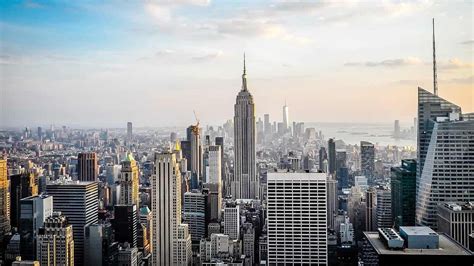Traveling to a new country can be an exciting and eye-opening experience. However, before embarking on your adventure, it is crucial to understand the visa requirements and restrictions of your chosen destination. In this blog post, we will guide you through the process of obtaining a tourist visa, from researching the necessary documents to completing the visa application. We will also provide tips and advice on addressing visa concerns when booking flights and accommodations, attending the visa interview, and even extending your stay. Let’s dive in and explore the world of tourist visas together!
Understanding Tourist Visas: An Introduction
A tourist visa is a document issued by a country’s government that allows an individual to enter and temporarily stay within that country for tourism or recreational purposes. It is an important aspect to consider when planning a trip abroad, as it determines the duration of stay and the activities one can engage in while visiting a foreign country. For those who are new to the concept of tourist visas, this blog post will serve as an introduction to understanding what tourist visas are and how they work.
When traveling to a different country, it is essential to familiarize yourself with the visa requirements and restrictions of your chosen destination. Each country has specific criteria that must be met in order to obtain a tourist visa. This could include having a valid passport, providing proof of sufficient funds to cover expenses during your stay, and demonstrating a clear intention to return to your home country. Additionally, certain countries may have restrictions on the activities a tourist can engage in, such as employment or studying, which must be taken into consideration when planning your trip.
Gathering the necessary documents for a visa application can often be a time-consuming and meticulous process. It is important to ensure that you have all the required paperwork before submitting your application to avoid any delays or complications. This may include providing proof of travel insurance, hotel reservations, a detailed itinerary, and a completed visa application form. It is recommended to carefully read and follow the instructions provided by the embassy or consulate of the country you intend to visit to ensure a smooth application process.
Researching Your Destination: Visa Requirements and Restrictions
When planning a trip abroad, it’s crucial to understand the visa requirements and restrictions of your destination country. Researching and familiarizing yourself with these guidelines will help ensure a smooth and hassle-free travel experience. Visa signifies the official permission granted by the government of a country, allowing foreign nationals to enter, stay, and sometimes work or study within its borders. Each country has its own visa policy, which outlines the various types of visas available, the requirements for obtaining them, and any restrictions or limitations that apply.
Relevant information regarding visa requirements and restrictions can usually be found on the official website of the embassy or consulate of your destination country. These websites typically provide details such as visa application procedures, required documentation, and processing times. Additionally, they may highlight any specific eligibility criteria or restrictions for certain types of visas, such as tourist, business, student, or work visas.
It’s important to note that visa requirements and restrictions can vary significantly from one country to another. Some countries may have more lenient visa policies, allowing tourists to visit for extended periods without a visa, while others may require a visa for any length of stay. Certain countries may also have specific travel restrictions or security measures in place, particularly in regions where conflicts or health hazards are prevalent.
- Before researching visa requirements, determine the purpose of your travel and the duration of your intended stay.
- Identify the official embassy or consulate website of your destination country.
- Look for the “Visa” or “Consular Services” section on the website.
- Read through the information provided regarding visa types, application procedures, and required documentation.
- Take note of any specific eligibility criteria or restrictions mentioned.
| Visa Type | Requirements | Restrictions |
|---|---|---|
| Tourist Visa | – Valid passport- Completed visa application- Proof of sufficient funds- Travel itinerary | – Limited duration of stay- No permission to work or study |
| Business Visa | – Valid passport- Invitation letter from a business or organization in the destination country- Proof of business activities | – Restricted to activities related to business or trade- No permission to engage in employment |
| Student Visa | – Valid passport- Letter of acceptance from a recognized educational institution- Proof of financial support- Health and/or travel insurance | – Limited to studying at the designated institution- No authorization for employment unless permitted by the visa |
By researching ahead of time and staying informed about the visa requirements and restrictions of your destination country, you can avoid unnecessary complications and ensure a successful trip. It’s recommended to start the visa application process well in advance to allow for any required documentation or additional steps. Remember to always consult the official embassy or consulate for up-to-date and accurate information regarding visas and entry requirements.
Preparing the Necessary Documents: Gathering Your Visa Application Materials
In order to successfully apply for a visa, it is crucial to gather all the necessary documents. Failing to provide the required paperwork can result in delays or even denial of your visa application. Therefore, it is important to be well-prepared and organized before submitting your visa application.
The first step in gathering your visa application materials is to research the specific requirements of the country you plan to visit. Different countries have different visa requirements, so it is important to know what documents are needed for your particular destination. This information can typically be found on the embassy or consulate website of the country you are planning to visit.
Once you have a clear understanding of the visa requirements, make a checklist of all the documents you will need. This will help you stay organized and ensure that you have everything you need before submitting your application. Some common documents that are typically required for visa applications include:
- Passport: Your passport must be valid for at least six months beyond your planned stay in the country.
- Visa application form: You will need to complete the visa application form provided by the embassy or consulate.
- Passport-sized photos: Most visa applications require two recent passport-sized photos.
- Proof of accommodation: You may be required to provide a hotel reservation or other proof of accommodation during your stay.
- Proof of financial means: Some countries require proof that you have sufficient funds to support yourself during your stay.
- Travel itinerary: You may need to provide a detailed travel itinerary, including information about your flights and accommodations.
- Supporting documents: Depending on the purpose of your visit, you may need additional supporting documents such as invitation letters, employment verification letters, or proof of enrollment in a study program.
Once you have gathered all the necessary documents, it is important to review them carefully to ensure that everything is in order. Check for any errors or missing information and make any necessary corrections or additions. It’s also a good idea to make copies of all your documents in case any are lost or misplaced during the application process.
Submitting your visa application with all the necessary documents is a crucial step in the visa application process. Be sure to follow the instructions provided by the embassy or consulate and submit your application well in advance of your planned travel dates. It is also recommended to keep track of your application by keeping a copy of the submission receipt or tracking number, in case any issues arise.
In conclusion, gathering the necessary documents for your visa application is a crucial step in the process. By researching the requirements, creating a checklist, and reviewing your documents carefully, you can ensure that your application is complete and accurate. Remember to submit your application in a timely manner and keep track of its progress. With proper preparation and organization, you can increase your chances of a successful visa application and smooth travel experience.
Completing the Visa Application: Step-by-Step Guide
When it comes to applying for a visa, the process can often seem overwhelming and confusing. However, with the right guidance and a step-by-step approach, completing your visa application doesn’t have to be a daunting task. In this guide, we will walk you through the essential steps you need to take to ensure a smooth visa application process.
1. Understand the Requirements: The first and most crucial step in completing your visa application is to thoroughly understand the requirements for the specific visa you are applying for. Different countries have different visa categories, each with its own set of eligibility criteria and supporting documents. Research and familiarize yourself with the specific requirements to avoid any delays or rejections.
2. Gather the Necessary Documents: Once you are aware of the requirements, it’s time to gather all the necessary documents for your visa application. This may include personal identification documents, proof of financial stability, travel itinerary, employment or education documents, and more. Make a checklist and ensure you have all the documents organized and ready for submission.
3. Complete the Application Form: Every visa application requires a completed application form, which can usually be found on the embassy or consulate website of the country you are applying to. Take your time to fill out the form accurately and double-check for any errors. Pay special attention to sections requiring personal information, travel plans, and declaration statements.
4. Provide Additional Supporting Documents: In addition to the application form, you may be required to provide additional supporting documents to strengthen your visa application. This could include bank statements, proof of accommodation, travel insurance, sponsorship letters, or invitation letters. Ensure that all the supporting documents are relevant and up-to-date.
5. Review and Submit: Before submitting your visa application, it’s essential to review all the information and documents thoroughly. Check for any missing or incorrect details, and make any necessary amendments. It’s also crucial to double-check the visa application fee and payment method required. Once you are confident everything is in order, submit your application either online or at the designated consulate or embassy.
By following this step-by-step guide, you can complete your visa application with confidence and ease. Remember to start the process well in advance to allow time for any unforeseen delays or additional document requests. Good luck with your visa application!
Booking Flights and Accommodations: Addressing Visa Concerns
When it comes to booking flights and accommodations for your travel, there are several factors to consider, especially when it comes to visa concerns. It is essential to understand the visa requirements and restrictions of your destination before making any travel arrangements. By doing your research and being well-prepared, you can ensure a smooth and hassle-free travel experience.
Firstly, it is important to research the visa requirements for your destination. Each country has its own set of rules and regulations regarding visas, so it is crucial to familiarize yourself with these before booking your flights and accommodations. Determine whether you need a visa, if it can be obtained on arrival, or if you require a pre-approved visa. Knowing the specific visa requirements will help you plan accordingly and avoid any potential issues during your trip.
Once you are aware of the visa requirements, it is time to address any concerns related to booking flights and accommodations. When booking your flights, it is advisable to choose a flexible ticket that allows changes or cancellations in case your visa application is denied or delayed. Some airlines offer refundable or changeable tickets for an additional fee.
- Consider booking refundable accommodations
- Book accommodations with flexible cancellation policies
- Ensure the accommodations are aware of your visa situation
- Keep track of any cancellation deadlines and fees
It is also important to communicate with your chosen accommodations regarding your visa situation. Inform them of any potential delays or uncertainties you may face. This will allow them to understand your situation and possibly provide flexibility in case your visa application takes longer than expected. Additionally, make sure to keep track of any cancellation deadlines and fees, should you need to amend your travel plans.
| Booking Flights: | Addressing Visa Concerns |
|---|---|
| Choose flexible tickets | Inform accommodations about visa situation |
| Consider refundable options | Be aware of cancellation policies and fees |
| Check for changeable ticket options | Communicate any potential delays or uncertainties |
Booking flights and accommodations while considering visa concerns can be a complex process. However, with careful planning and research, you can minimize any potential risks and have a worry-free travel experience. Remember to stay informed about the visa requirements and restrictions of your destination, choose flexible options for flights and accommodations, and maintain open communication with your chosen accommodations. By addressing visa concerns during the booking process, you can enjoy your trip with peace of mind.
Attending the Visa Interview: Tips for a Successful Outcome
Securing a visa to visit a foreign country can be an intricate and stress-inducing process. One of the crucial steps in this process is attending the visa interview. This is a critical juncture that can determine whether or not your visa application will be approved. To help you navigate this intimidating step with confidence, we have compiled a list of essential tips to enhance your chances of a successful outcome.
1. Do Your Homework: Research and gather information about the embassy or consulate where your visa interview will take place. Familiarize yourself with their procedures, regulations, and any specific requirements they may have. This will help you to present yourself as a well-prepared and organized individual, leaving a positive impression on the visa officer.
2. Dress Professionally: The old saying “dress to impress” holds true for visa interviews as well. Opt for formal attire that reflects a serious and respectful approach. While your appearance is not the sole determinant of your visa outcome, presenting yourself professionally can positively influence the visa officer’s perception of you.
3. Be Punctual: Arriving late to your visa interview can create a negative impression and may even result in your appointment being rescheduled. Plan your journey well in advance, accounting for potential traffic or other unforeseen delays. It’s advisable to arrive at least 15-30 minutes before your scheduled interview time.
| Tips for a Successful Visa Interview | Importance |
|---|---|
| Research the embassy or consulate | Helps in understanding procedures and requirements |
| Dress professionally | Creates a positive first impression |
| Arrive punctually | Shows respect and preparedness |
4. Stay Calm and Confident: Nervousness is natural when it comes to visa interviews, but it’s important to remain calm and composed. Confidence in your answers and demeanor can inspire the visa officer’s trust in your intentions. Practice mock interviews with friends or family beforehand to help build your confidence.
5. Answer Honestly and Clearly: During the interview, be truthful and concise in your responses. Provide the necessary information without going into unnecessary details. Remember to speak clearly and audibly, allowing the visa officer to understand your answers easily.
6. Prepare Supporting Documents: Carry all required supporting documents neatly organized and readily accessible. This includes your passport, visa application form, financial statements, proof of accommodation, and any other relevant paperwork. Being well-prepared with all necessary documents can help alleviate any concerns the visa officer may have.
7. Address Any Concerns: If the visa officer raises a concern or asks for additional clarification, remain calm and address their queries honestly. Offer any supporting documents that may resolve their concerns, demonstrating your sincerity and willingness to comply with the visa regulations.
By following these tips and preparing meticulously, you can increase your chances of a successful visa interview outcome. Remember, the visa interview is an opportunity to present yourself as a genuine traveler with legitimate reasons for visiting your desired destination. Good luck!
Extending Your Stay: Visa Renewal and Overstaying Penalties
When planning a trip abroad, it’s essential to be aware of the visa regulations and restrictions of your destination country. Understanding the process of visa renewal and the penalties associated with overstaying can save you from unnecessary hassle and legal complications. In this blog post, we will delve into the topic of extending your stay, discussing visa renewal procedures and the potential consequences of overstaying.
Visa Renewal Process
When you find yourself needing to stay in a country for a longer duration than your initial visa permits, it is crucial to explore the options available for visa renewal. The renewal process varies from country to country, so it’s essential to research the specific requirements and procedures of your destination. In most cases, you will need to submit a renewal application to the appropriate immigration authorities. This application typically includes providing updated personal information, reasons for the extension, and supporting documents such as a valid passport, proof of financial stability, and travel insurance.
Overstaying Penalties
Overstaying your visa can have serious consequences, ranging from fines to difficulties in future visa applications or even deportation. Each country has its own rules regarding overstaying, and it’s vital to understand the potential penalties before making the decision to exceed your authorized stay. Common penalties can include hefty fines, travel bans, and restrictions on re-entering the country for a specified period. Some countries may also impose additional penalties, such as mandatory detention or deportation. It’s important to remember that overstaying is considered a violation of immigration laws and could have long-term repercussions.
Preventing Overstaying
Avoiding overstaying is always the best course of action to ensure a hassle-free travel experience. To prevent unintentional overstays, stay informed about your visa’s expiration date and any possible renewal procedures well in advance. If you anticipate needing an extension, proactively contact the local immigration authorities to inquire about the necessary steps. Additionally, staying organized and keeping track of your travel documents and deadlines can help you avoid any accidental overstays. Remember, complying with visa regulations not only ensures your safety and legal status but also allows for smooth travel experiences and future opportunities.
Conclusion
Extending your stay in a foreign country requires thorough knowledge of the visa renewal process and an understanding of the potential penalties associated with overstaying. By familiarizing yourself with the specific requirements and procedures of your destination country, you can navigate the process more efficiently and avoid unnecessary complications. Remember to always comply with immigration laws, stay informed, and plan ahead to ensure a successful and worry-free travel experience.
Frequently Asked Questions
Example Question: What is a tourist visa?
A tourist visa is a temporary visa that allows individuals to travel to a foreign country for the purpose of tourism or leisure activities.
What are the visa requirements and restrictions for my destination?
Each country has its own specific visa requirements and restrictions. It is important to research and understand the visa requirements and restrictions for your destination before applying for a tourist visa.
What documents do I need to gather for my visa application?
For a tourist visa application, you will generally need documents such as a valid passport, visa application form, proof of accommodation, proof of financial means, and travel itinerary.
How do I complete a tourist visa application?
Completing a tourist visa application involves filling out the necessary forms and providing all required documents. It is important to follow the instructions provided by the visa application authorities and double-check all information before submitting your application.
How should I address visa concerns when booking flights and accommodations?
When booking flights and accommodations, it is important to consider visa concerns such as the duration of your stay, visa validity dates, and any restrictions on entry or exit from the country. Ensure that your flight and accommodation plans align with the requirements of your tourist visa.
What tips can you provide for a successful visa interview?
To have a successful visa interview, it is important to be well-prepared and confident. Some tips include bringing all required documents, answering questions honestly and clearly, demonstrating strong ties to your home country, and showing genuine intent to return after your trip.
What should I know about visa renewal and overstaying penalties?
Visa renewal options and overstaying penalties vary depending on the country. It is important to understand the specific rules and regulations regarding visa extensions and overstaying in order to avoid any legal complications or penalties.
EDITOR
Categories
Recent Articles

NotteGlobal’s May 2024 Real Estate Report: A Comprehensive Analysis of Turkey’s Market Trends
June 22, 2024

New Immigration Policy in the US: A Major Step for Family Unity
June 21, 2024

Second Largest Investor Group in Greece: Turks
June 14, 2024

Exploring the Hidden Gems of Athens Riviera: A Guide to Luxurious Neighborhoods
June 3, 2024

Economic Stability and Growth in Turkey
May 31, 2024

Turkey’s Housing Sales Statistics for April 2024: A Comprehensive Analysis
May 24, 2024

BNP Paribas Forecasts End-of-Year USD/TRY Rate
May 3, 2024

Significant Updates to the Greece Golden Visa Program in 2024
April 29, 2024

€800,000: New Threshold for Greece’s Golden Visa
February 10, 2024

Golden Visa for Spain
December 27, 2023


